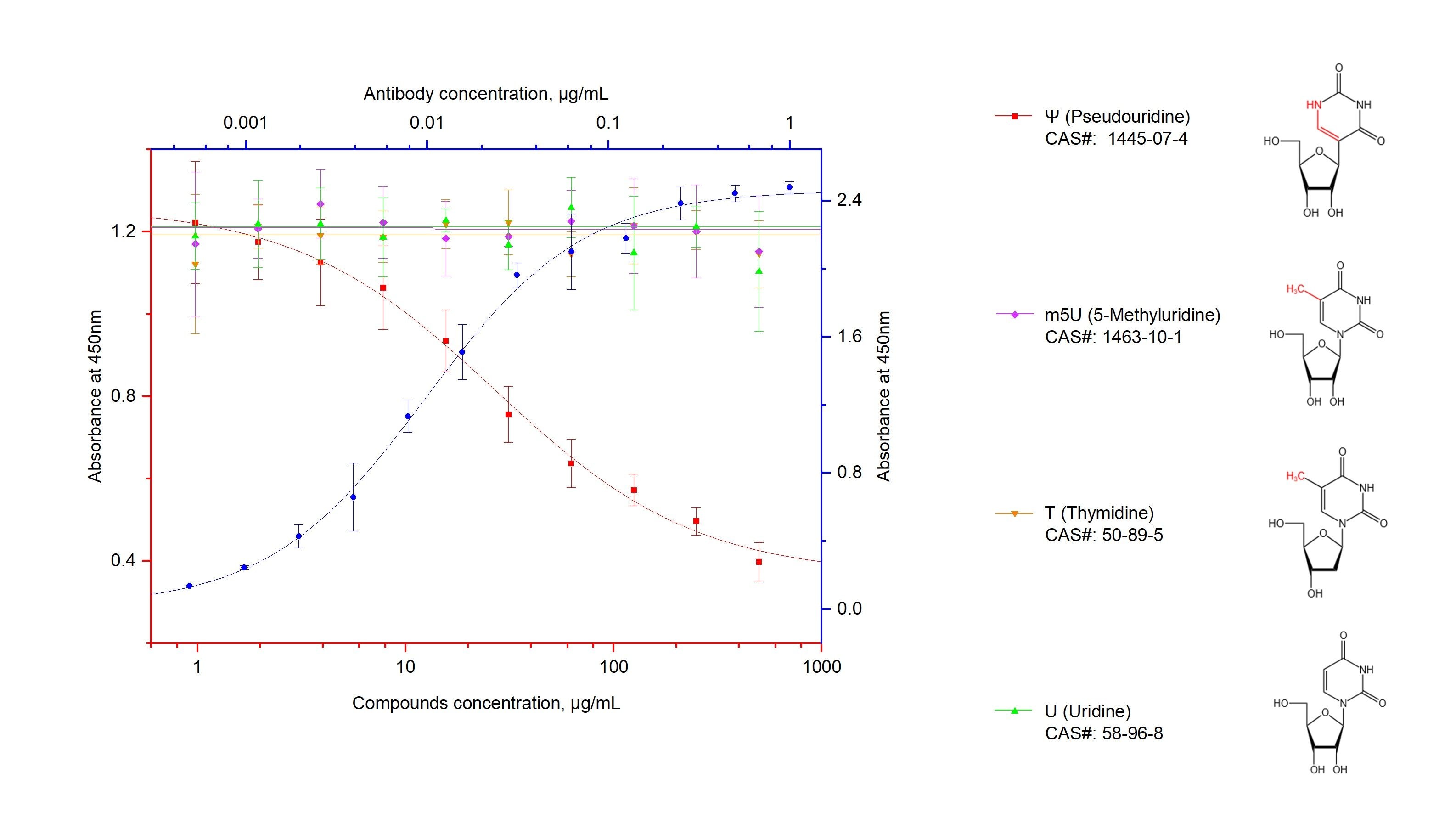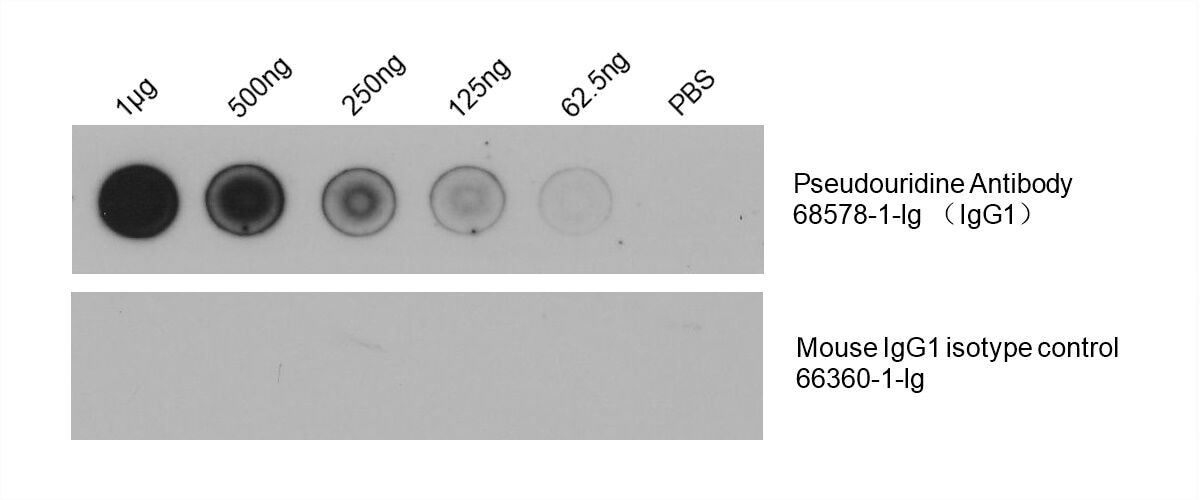Validation Data Gallery
Tested Applications
| Positive ELISA detected in | Pseudouridine |
| Positive Dot Blot detected in | RNA |
Recommended dilution
| Application | Dilution |
|---|---|
| Enzyme-linked Immunosorbent Assay (ELISA) | ELISA : 1:2000-1:20000 |
| DOT BLOT | DOT BLOT : 1:1000-1:4000 |
| It is recommended that this reagent should be titrated in each testing system to obtain optimal results. | |
| Sample-dependent, Check data in validation data gallery. | |
Product Information
68578-1-Ig targets Pseudouridine in Dot Blot, ELISA applications and shows reactivity with chemical compound samples.
| Tested Reactivity | chemical compound |
| Cited Reactivity | human |
| Host / Isotype | Mouse / IgG1 |
| Class | Monoclonal |
| Type | Antibody |
| Immunogen |
PTG 相同性解析による交差性が予測される生物種 |
| Full Name | Pseudouridine |
| Gene Symbol | |
| Gene ID (NCBI) | |
| RRID | AB_3085278 |
| Conjugate | Unconjugated |
| Form | |
| Form | Liquid |
| Purification Method | Protein G purification |
| Storage Buffer | PBS with 0.02% sodium azide and 50% glycerol{{ptg:BufferTemp}}7.3 |
| Storage Conditions | Store at -20°C. Stable for one year after shipment. Aliquoting is unnecessary for -20oC storage. |
Background Information
Pseudouridine is an isomer of the nucleoside uridine in which the uracil is attached via a carbon-carbon instead of a nitrogen-carbon glycosidic bond. Pseudouridine is the most abundant RNA modification in cellular RNA (PMID: 29104216). After transcription and following synthesis, RNA can be modified with over 100 chemically distinct modifications. These can potentially regulate RNA expression post-transcriptionally, in addition to the four standard nucleotides and play a variety of roles in the cell including translation, localization and stabilization of RNA. Pseudouridine in rRNA and tRNA has been shown to fine-tune and stabilize the regional structure and help maintain their functions in mRNA decoding, ribosome assembly, processing and translation (PMID: 10902565, PMID: 23391857, PMID: 28045575). Pseudouridine in snRNA has been shown to enhance spliceosomal RNA-pre-mRNA interaction to facilitate splicing regulation (PMID 27268497).
Protocol for Dot Blot:
https://www.ptglab.com/protocol/68578-1-IgDotBlot.pdf
Publications
| Species | Application | Title |
|---|---|---|
Cell Signal PUS1 facilitates cell migration in clear cell renal cell carcinoma through the promotion of mRNA pseudouridylation and the stabilization of the SMOX gene | ||
Gastroenterol Rep (Oxf) TRUB1 is a novel biomarker for promoting malignancy in colorectal cancer via NFκB signaling |


